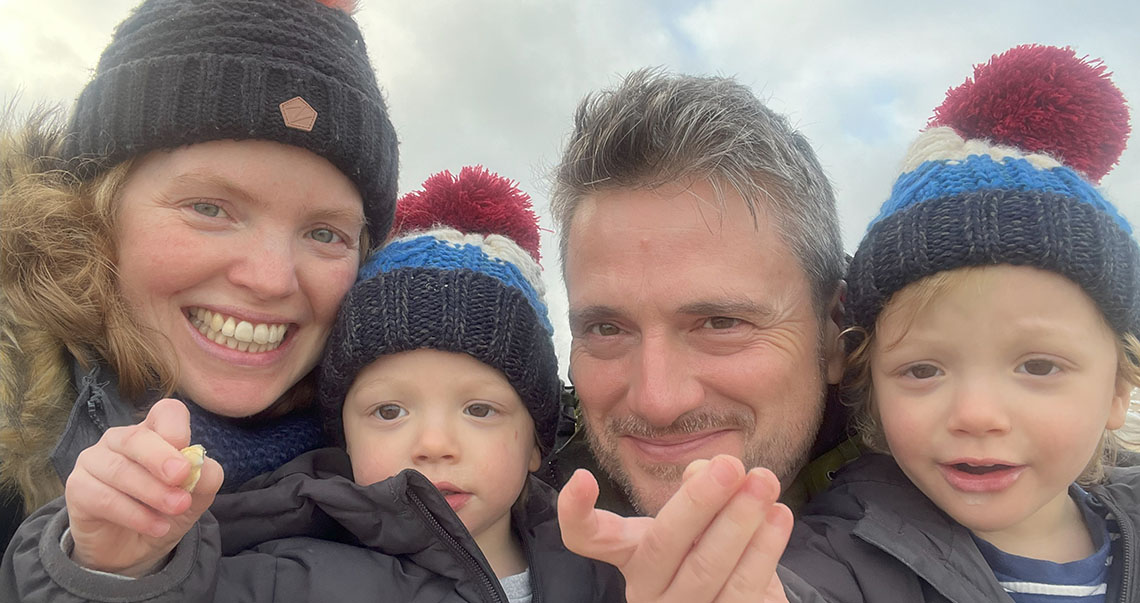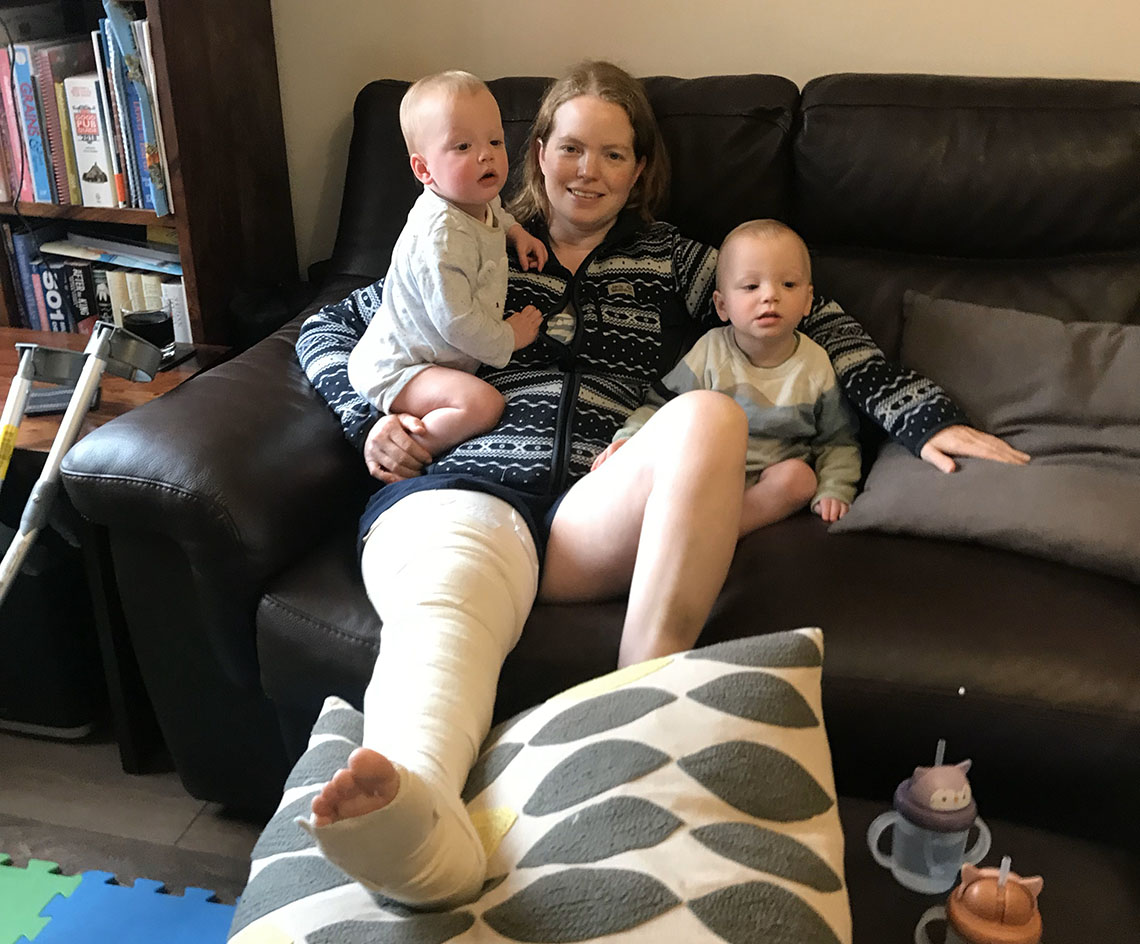
This story is adapted from an article originally written on 8 August 2024
After being treated for skin cancer, Beatrice Buckley from Reading was keen to give something back.
She signed up to Be Part of Research's new 'research matchmaking' service, which enables people to be contacted about research opportunities that are relevant to them.
She was matched to MyMelanoma, a major skin cancer study that aims to answer the most important questions about the cancer and its treatment.
Beatrice, known as Bea, was diagnosed with stage 3 acral melanoma 2 years ago. A rare type of skin cancer, acral melanoma is found on the palms of the hands, the soles of the feet, or under the nails.
The 39-year-old mum developed a mole on her foot while pregnant with her twin sons. Originally, she thought it was a verruca and visited the pharmacy. She was advised to monitor it, but was told it was likely nothing to worry about. The mole looked obviously bigger than a regular freckle and was dark brown/black in colour.
Melanoma skin cancer is the 5th most common cancer in the UK, accounting for 4% of all new cancer cases, with around 16,700 new cases every year.
Bea visited her GP, who also thought it might be an irritated verruca, but referred her to a dermatologist just in case. The mole was partially removed and sent to the lab to check for cancer.
“It came back as malignant melanoma,” she said. “I was really shocked. I was quite young. All the doctors that I'd seen were all really surprised. They hadn't expected it to be melanoma.”
“It took about 5 or 6 months for me to get a full stage diagnosis,” she continued. “Unfortunately, the cancer had spread to the lymph nodes.” 
Bea had 3 surgical procedures and undertook a year of additional targeted therapy. This involved taking 2 types of drug tablets to prevent the risk of the cancer coming back.
Currently disease-free, Bea decided to take part in the MyMelanoma study after receiving an email invitation from Be Part of Research.
MyMelanoma is the most ambitious melanoma research project undertaken in the UK. It aims to recruit 20,000 participants to build the world’s biggest melanoma database.
Researchers around the world will be able to use this data to answer some of the most important questions about the cancer, such as ‘Which patients are more likely to have a relapse?’ or ‘How can we best manage he side effects of immunotherapy?’
Any person who has received NHS treatment for melanoma can volunteer for the study, which involves completing two online questionnaires about their lifestyle, health and personal and family cancer history. The information will be linked anonymously with participants’ NHS records.
More than 1,500 people have already volunteered to take part, including Bea.
“Health is the best commodity that we have; it's our biggest wealth. It's important that we learn more and more about this disease for future generations - to improve their chances if they get diagnosed.”
- Bea Buckley
To help recruit volunteers for the study, the research team have partnered with Be Part of Research. The free online service enables people to register their interest in taking part in studies on certain conditions. When a suitable study becomes available the information is sent straight to the person’s inbox with information on how to take part.
“It’s been a really easy, seamless experience,” said Beatrice of using Be Part of Research. “Life is busy isn’t it? I'm not sure how else people would find out about clinical studies that they would be eligible for.”
Create your free Be Part of Research account today and make a difference in the treatment and care of tomorrow.




